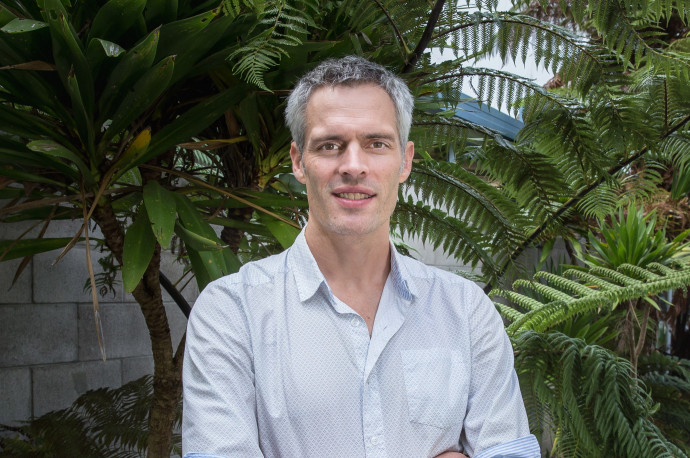Jay Marlowe

2018: Associate Professor Jay Marlowe, University of Auckland, Faculty of Education and Social Work, has been awarded a Rutherford Discovery Fellowship for research entitled: ‘Dislocation in an age of connection: Mapping refugee settlement trajectories within an increasingly mobile world’.
Biography
Dr Jay Marlowe is an Associate Professor at the University of Auckland Faculty of Education and Social Work specialising in refugee resettlement and social inclusion, and disaster risk reduction. He studied at the University of North Carolina at Chapel Hill in the US, before pursuing Masters and doctorate study in social work at Flinders University in Adelaide, Australia. Dr Marlowe joined the University of Auckland in 2010, where he has received Marsden Fund, Disasters and Societal Resilience National Science Challenge, and Marie Curie RISE support for his work on refugees’ transnational networks, crisis translation, and societal resilience to disasters. In 2017, he received a National Tertiary Teaching Excellence Award. Dr Marlowe has also worked with community, national, and international organisations, including the Auckland Resettled Community Coalition, NZ Red Cross, and the World Health Organisation, to develop best practice in ethics and supporting resettled refugees.
Summary
Refugees, like most people, keep in touch with home, family, and their diaspora using the internet and mobile phones. This makes them far better connected than previous generations of resettled refugees. Our refugee policies, however, were developed for a prior age. What does ‘belonging’ mean, when refugees can maintain significant links and relationships in several places and countries at once? How can policy and practice best support refugee resettlement, social inclusion, and wellbeing in an age of transnational networks?
In this research, Dr Marlowe will map refugees’ social relationships, economic contributions, and transnational livelihoods as well as how New Zealand society, government policy, social media and global networks shape their settlement trajectories and opportunities. He will use a range of methods, including surveys, social network analysis and interviews, to build an accurate picture of how refugees forge and sustain relationships. This information will be combined with longitudinal data to understand refugees’ employment, welfare, health and education outcomes, and how these are shaped by ethnicity, age, gender, location, language skills, and years settled. Dr Marlowe will also examine ways to ensure refugees are well connected in New Zealand, firstly through community translation training to ensure preparedness in case of disaster; and secondly through establishing closer links with tangata whenua. This research will extend present theoretical understandings of how refugees build social connection, despite the specific limitations on mobility that they encounter. The findings will help establish how settlement policy and practice can incorporate both local and transnational contexts to reflect the realities of people’s daily lives and support successfully resettlement in Aotearoa New Zealand.
